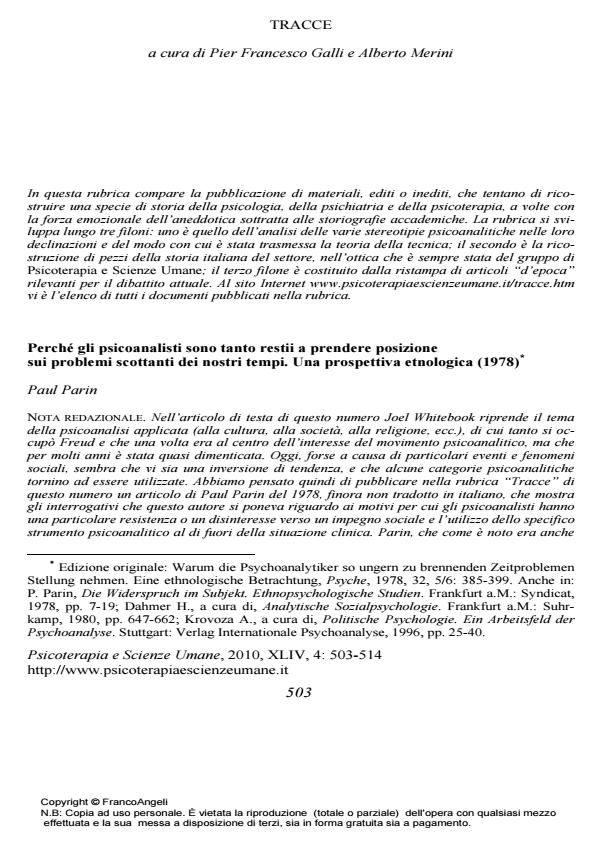Why psychoanalysts are so reluctant to take position on hot issues of their time. an ethnological perspective
Journal title PSICOTERAPIA E SCIENZE UMANE
Author/s Paul Parin
Publishing Year 2010 Issue 2010/4
Language Italian Pages 12 P. 503-514 File size 276 KB
DOI 10.3280/PU2010-004004
DOI is like a bar code for intellectual property: to have more infomation
click here
Below, you can see the article first page
If you want to buy this article in PDF format, you can do it, following the instructions to buy download credits

FrancoAngeli is member of Publishers International Linking Association, Inc (PILA), a not-for-profit association which run the CrossRef service enabling links to and from online scholarly content.
Paul Parin (1916- 2009) discusses the reasons why psychoanalysts are so reluctant, or uninterested, to take position on social issues or to utilize the psychoanalytic instrument also outside the clinical situation, such as in applied psychoanalysis (culture, society, religion, etc.). In this paper Parin, who was also an ethnologist, sees psychoanalysts as an "ethnic group", and tries to understand the historical, sociological and psychological motivations that transformed psychoanalysis merely into a profession (almost as a medical specialty, at least in some Anglo-Saxon countries). The original identity of psychoanalysis, instead, was wider, as witnessed by Freud’s cultural writings. In this effort, Parin re-examines some aspects of the history of psychoanalytic movement and of the policies of the International Psychoanalytic Association (IPA) concerning training, candidates selection, International meetings’ programs, relationship with medicine, and so on.
Keywords: Political commitment, hot issues of our time, organized psychoanalysis, history of psychoanalysis, ethnology
Paul Parin, Perché gli psicoanalisti sono tanto restii a prendere posizione sui problemi scottanti dei nostri tempi. Una prospettiva etnologica (1978) in "PSICOTERAPIA E SCIENZE UMANE" 4/2010, pp 503-514, DOI: 10.3280/PU2010-004004